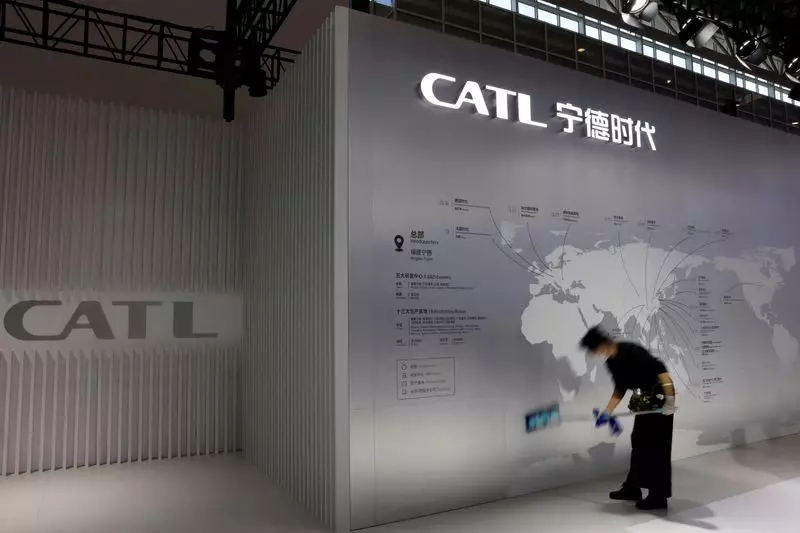In a significant move that underscores the growing tension between the United States and China, the Pentagon has amended its list of companies allegedly tied to the Chinese military. This updated designation now includes influential tech giants such as Tencent Holdings, a leader in gaming and social media, along with CATL, the preeminent manufacturer of batteries for electric vehicles. The inclusion of these firms is part of a broader strategy by the U.S. government to reflect its increasing scrutiny of Chinese enterprises that it believes may pose security risks.
The Defense Department’s “Section 1260H list,” which is updated annually and details companies said to contribute to China’s military apparatus, expanded to include a total of 134 firms in this latest report. The implications of this designation are vast, as it not only reflects the overarching geopolitical landscape but also affects the market reactions and operational environments for the companies involved.
In the wake of this announcement, shares of Tencent experienced a steep decline of nearly 7% in Hong Kong trading, while U.S.-traded shares plummeted about 8%. For CATL, the news precipitated more than a 5% drop in its Shenzhen-listed shares. Both companies quickly issued statements contesting their inclusion on the list. Tencent characterized the designation as “clearly a mistake,” asserting that it is “not a military company or supplier.” Similarly, CATL claimed that it is entirely non-military-focused and also plans to challenge its designation.
The reactions from these firms illuminate the potential operational and reputational damage that this list can inflict. The companies emphasized that their core functions do not engage in military activities, suggesting that this classification could be a critical misunderstanding of their business models. Another affected company, Quectel, echoed similar sentiments, arguing against its designation and signifying a willingness to request a review from the Pentagon.
This incorporation of Chinese firms into the military companies list is symptomatic of the deteriorating relations between the United States and China. Increasingly stringent measures and regulations reflect a reality where economic and national security are intertwined. American lawmakers have been vocal in pushing for tighter controls on interactions with Chinese businesses, especially those perceived as aiding military advancements.
Craig Singleton, a noted expert on China, articulated a stark warning regarding the implications of this designation. He posited that the U.S. is no longer merely safeguarding a select group of technologies but is instead erecting a formidable barrier around an expanding pool of sensitive technologies. The designation of firms like MGI Tech and Origincell Technology, which are involved in notable developments such as genomic sequencing and bio-storage technologies, reveals the breadth of the Pentagon’s concerns.
The potential fallout from being included on the Pentagon’s list goes beyond immediate market impacts; it casts a long shadow over future investment opportunities. The U.S. government has suggested the possibility of investment restrictions on designated companies, which has significant implications for American firms contemplating partnerships or collaborations within China. Major corporations, such as Ford Motor Company, find themselves in precarious positions as they explore technological collaborations with firms like CATL, interpreting their operations through the lens of potential sanctions and public perception.
Even firms that have previously faced designation issues, like DJI and Hesai Technologies, continue to navigate the ramifications of their connections to the Chinese military, illustrating the prolonged nature of these consequences.
The Pentagon’s updated list serves as a crucial indicator of the U.S. government’s strategy to curb perceived threats to its national security. For the companies implicated, the response reflects not only a denial of military association but also an urgent call for reconsideration by the Pentagon. This situation is emblematic of the broader geopolitical challenges that define the current era: crucial technological innovations are increasingly entangled with questions of defense and military application. As the landscape evolves, firms operating in or with ties to China will need to navigate these murky waters carefully, balancing opportunities against the backdrop of political sensitivities and regulatory scrutiny.
The relations between these two global powers may yet reach another critical juncture, underscoring the need for companies to remain vigilant and adaptable amid shifting policies and public sentiment regarding their operations.

